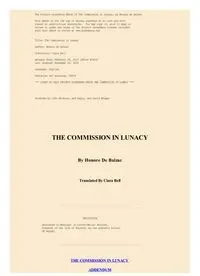
The Commission in Lunacy by Honore de Balzac PDF
Preview The Commission in Lunacy by Honore de Balzac
The Project Gutenberg EBook of The Commission in Lunacy, by Honore de Balzac This eBook is for the use of anyone anywhere at no cost and with almost no restrictions whatsoever. You may copy it, give it away or re-use it under the terms of the Project Gutenberg License included with this eBook or online at www.gutenberg.org Title: The Commission in Lunacy Author: Honore de Balzac Translator: Clara Bell Release Date: February 24, 2010 [EBook #1410] Last Updated: November 22, 2016 Language: English Character set encoding: UTF-8 *** START OF THIS PROJECT GUTENBERG EBOOK THE COMMISSION IN LUNACY *** Produced by John Bickers, and Dagny, and David Widger THE COMMISSION IN LUNACY By Honore De Balzac Translated By Clara Bell DEDICATION Dedicated to Monsieur le Contre-Amiral Bazoche, Governor of the Isle of Bourbon, by the grateful writer. DE BALZAC. THE COMMISSION IN LUNACY ADDENDUM THE COMMISSION IN LUNACY In 1828, at about one o’clock one morning, two persons came out of a large house in the Rue du Faubourg Saint-Honore, near the Elysee-Bourbon. One was the famous doctor, Horace Bianchon; the other was one of the most elegant men in Paris, the Baron de Rastignac; they were friends of long standing. Each had sent away his carriage, and no cab was to be seen in the street; but the night was fine, and the pavement dry. “We will walk as far as the boulevard,” said Eugene de Rastignac to Bianchon. “You can get a hackney cab at the club; there is always one to be found there till daybreak. Come with me as far as my house.” “With pleasure.” “Well, and what have you to say about it?” “About that woman?” said the doctor coldly. “There I recognize my Bianchon!” exclaimed Rastignac. “Why, how?” “Well, my dear fellow, you speak of the Marquise d’Espard as if she were a case for your hospital.” “Do you want to know what I think, Eugene? If you throw over Madame de Nucingen for this Marquise, you will swap a one-eyed horse for a blind one.” “Madame de Nucingen is six-and-thirty, Bianchon.” “And this woman is three-and-thirty,” said the doctor quickly. “Her worst enemies only say six-and-twenty.” “My dear boy, when you really want to know a woman’s age, look at her temples and the tip of her nose. Whatever women may achieve with their cosmetics, they can do nothing against those incorruptible witnesses to their experiences. There each year of life has left its stigmata. When a woman’s temples are flaccid, seamed, withered in a particular way; when at the tip of her nose you see those minute specks, which look like the imperceptible black smuts which are shed in London by the chimneys in which coal is burnt.... Your servant, sir! That woman is more than thirty. She may be handsome, witty, loving—whatever you please, but she is past thirty, she is arriving at maturity. I do not blame men who attach themselves to that kind of woman; only, a man of your superior distinction must not mistake a winter pippin for a little summer apple, smiling on the bough, and waiting for you to crunch it. Love never goes to study the registers of birth and marriage; no one loves a woman because she is handsome or ugly, stupid or clever; we love because we love.” “Well, for my part, I love for quite other reasons. She is Marquise d’Espard; she was a Blamont-Chauvry; she is the fashion; she has soul; her foot is as pretty as the Duchesse de Berri’s; she has perhaps a hundred thousand francs a year—some day, perhaps, I may marry her! In short, she will put me into a position which will enable me to pay my debts.” “I thought you were rich,” interrupted Bianchon. “Bah! I have twenty thousand francs a year—just enough to keep up my stables. I was thoroughly done, my dear fellow, in that Nucingen business; I will tell you about that.—I have got my sisters married; that is the clearest profit I can show since we last met; and I would rather have them provided for than have five hundred thousand francs a year. No, what would you have me do? I am ambitious. To what can Madame de Nucingen lead? A year more and I shall be shelved, stuck in a pigeon-hole like a married man. I have all the discomforts of marriage and of single life, without the advantages of either; a false position to which every man must come who remains tied too long to the same apron-string.” “So you think you will come upon a treasure here?” said Bianchon. “Your Marquise, my dear fellow, does not hit my fancy at all.” “Your liberal opinions blur your eyesight. If Madame d’Espard were a Madame Rabourdin...” “Listen to me. Noble or simple, she would still have no soul; she would still be a perfect type of selfishness. Take my word for it, medical men are accustomed to judge of people and things; the sharpest of us read the soul while we study the body. In spite of that pretty boudoir where we have spent this evening, in spite of the magnificence of the house, it is quite possible that Madame la Marquise is in debt.” “What makes you think so?” “I do not assert it; I am supposing. She talked of her soul as Louis XVIII. used to talk of his heart. I tell you this: That fragile, fair woman, with her chestnut hair, who pities herself that she may be pitied, enjoys an iron constitution, an appetite like a wolf’s, and the strength and cowardice of a tiger. Gauze, and silk, and muslin were never more cleverly twisted round a lie! Ecco.” “Bianchon, you frighten me! You have learned a good many things, then, since we lived in the Maison Vauquer?” “Yes, since then, my boy, I have seen puppets, both dolls and manikins. I know something of the ways of the fine ladies whose bodies we attend to, saving that which is dearest to them, their child—if they love it—or their pretty faces, which they always worship. A man spends his nights by their pillow, wearing himself to death to spare them the slightest loss of beauty in any part; he succeeds, he keeps their secret like the dead; they send to ask for his bill, and think it horribly exorbitant. Who saved them? Nature. Far from recommending him, they speak ill of him, fearing lest he should become the physician of their best friends. “My dear fellow, those women of whom you say, ‘They are angels!’ I—I—have seen stripped of the little grimaces under which they hide their soul, as well as of the frippery under which they disguise their defects—without manners and without stays; they are not beautiful. “We saw a great deal of mud, a great deal of dirt, under the waters of the world when we were aground for a time on the shoals of the Maison Vauquer.—What we saw there was nothing. Since I have gone into high society, I have seen monsters dressed in satin, Michonneaus in white gloves, Poirets bedizened with orders, fine gentlemen doing more usurious business than old Gobseck! To the shame of mankind, when I have wanted to shake hands with Virtue, I have found her shivering in a loft, persecuted by calumny, half- starving on a income or a salary of fifteen hundred francs a year, and regarded as crazy, or eccentric, or imbecile. “In short, my dear boy, the Marquise is a woman of fashion, and I have a particular horror of that kind of woman. Do you want to know why? A woman who has a lofty soul, fine taste, gentle wit, a generously warm heart, and who lives a simple life, has not a chance of being the fashion. Ergo: A woman of fashion and a man in power are analogous; but there is this difference: the qualities by which a man raises himself above others ennoble him and are a glory to him; whereas the qualities by which a woman gains power for a day are hideous vices; she belies her nature to hide her character, and to live the militant life of the world she must have iron strength under a frail appearance. “I, as a physician, know that a sound stomach excludes a good heart. Your woman of fashion feels nothing; her rage for pleasure has its source in a longing to heat up her cold nature, a craving for excitement and enjoyment, like an old man who stands night after night by the footlights at the opera. As she has more brain than heart, she sacrifices genuine passion and true friends to her triumph, as a general sends his most devoted subalterns to the front in order to win a battle. The woman of fashion ceases to be a woman; she is neither mother, nor wife, nor lover. She is, medically speaking, sex in the brain. And your Marquise, too, has all the characteristics of her monstrosity, the beak of a bird of prey, the clear, cold eye, the gentle voice—she is as polished as the steel of a machine, she touches everything except the heart.” “There is some truth in what you say, Bianchon.” “Some truth?” replied Bianchon. “It is all true. Do you suppose that I was not struck to the heart by the insulting politeness by which she made me measure the imaginary distance which her noble birth sets between us? That I did not feel the deepest pity for her cat-like civilities when I remembered what her object was? A year hence she will not write one word to do me the slightest service, and this evening she pelted me with smiles, believing that I can influence my uncle Popinot, on whom the success of her case——” “Would you rather she should have played the fool with you, my dear fellow?—I accept your diatribe against women of fashion; but you are beside the mark. I should always prefer for a wife a Marquise d’Espard to the most devout and devoted creature on earth. Marry an angel! you would have to go and bury your happiness in the depths of the country! The wife of a politician is a governing machine, a contrivance that makes compliments and courtesies. She is the most important and most faithful tool which an ambitious man can use; a friend, in short, who may compromise herself without mischief, and whom he may belie without harmful results. Fancy Mahomet in Paris in the nineteenth century! His wife would be a Rohan, a Duchesse de Chevreuse of the Fronde, as keen and as flattering as an Ambassadress, as wily as Figaro. Your loving wives lead nowhere; a woman of the world leads to everything; she is the diamond with which a man cuts every window when he has not the golden key which unlocks every door. Leave humdrum virtues to the humdrum, ambitious vices to the ambitious. “Besides, my dear fellow, do you imagine that the love of a Duchesse de Langeais, or de Maufrigneuse, or of a Lady Dudley does not bestow immense pleasure? If only you knew how much value the cold, severe style of such a woman gives to the smallest evidence of their affection! What a delight it is to see a periwinkle piercing through the snow! A smile from below a fan contradicts the reserve of an assumed attitude, and is worth all the unbridled tenderness of your middle-class women with their mortgaged devotion; for, in love, devotion is nearly akin to speculation. “And, then, a woman of fashion, a Blamont-Chauvry, has her virtues too! Her virtues are fortune, power, effect, a certain contempt of all that is beneath her——” “Thank you!” said Bianchon. “Old curmudgeon!” said Rastignac, laughing. “Come—do not be so common, do like your friend Desplein; be a Baron, a Knight of Saint-Michael; become a peer of France, and marry your daughters to dukes.” “I! May the five hundred thousand devils——” “Come, come! Can you be superior only in medicine? Really, you distress me...” “I hate that sort of people; I long for a revolution to deliver us from them for ever.” “And so, my dear Robespierre of the lancet, you will not go to-morrow to your uncle Popinot?” “Yes, I will,” said Bianchon; “for you I would go to hell to fetch water...” “My good friend, you really touch me. I have sworn that a commission shall sit on the Marquis. Why, here is even a long-saved tear to thank you.” “But,” Bianchon went on, “I do not promise to succeed as you wish with Jean-Jules Popinot. You do not know him. However, I will take him to see your Marquise the day after to-morrow; she may get round him if she can. I doubt it. If all the truffles, all the Duchesses, all the mistresses, and all the charmers in Paris were there in the full bloom of their beauty; if the King promised him the Prairie, and the Almighty gave him the Order of Paradise with the revenues of Purgatory, not one of all these powers would induce him to transfer a single straw from one saucer of his scales into the other. He is a judge, as Death is Death.” The two friends had reached the office of the Minister for Foreign Affairs, at the corner of the Boulevard des Capucines. “Here you are at home,” said Bianchon, laughing, as he pointed to the ministerial residence. “And here is my carriage,” he added, calling a hackney cab. “And these—express our fortune.” “You will be happy at the bottom of the sea, while I am still struggling with the tempests on the surface, till I sink and go to ask you for a corner in your grotto, old fellow!” “Till Saturday,” replied Bianchon. “Agreed,” said Rastignac. “And you promise me Popinot?” “I will do all my conscience will allow. Perhaps this appeal for a commission covers some little dramorama, to use a word of our good bad times.” “Poor Bianchon! he will never be anything but a good fellow,” said Rastignac to himself as the cab drove off. “Rastignac has given me the most difficult negotiation in the world,” said Bianchon to himself, remembering, as he rose next morning, the delicate commission intrusted to him. “However, I have never asked the smallest service from my uncle in Court, and have paid more than a thousand visits gratis for him. And, after all, we are not apt to mince matters between ourselves. He will say Yes or No, and there an end.” After this little soliloquy the famous physician bent his steps, at seven in the morning, towards the Rue du Fouarre, where dwelt Monsieur Jean-Jules Popinot, judge of the Lower Court of the Department of the Seine. The Rue du Fouarre—an old word meaning straw—was in the thirteenth century the most important street in Paris. There stood the Schools of the University, where the voices of Abelard and of Gerson were heard in the world of learning. It is now one of the dirtiest streets of the Twelfth Arrondissement, the poorest quarter of Paris, that in which two-thirds of the population lack firing in winter, which leaves most brats at the gate of the Foundling Hospital, which sends most beggars to the poorhouse, most rag-pickers to the street corners, most decrepit old folks to bask against the walls on which the sun shines, most delinquents to the police courts. Half-way down this street, which is always damp, and where the gutter carries to the Seine the blackened waters from some dye- works, there is an old house, restored no doubt under Francis I., and built of bricks held together by a few courses of masonry. That it is substantial seems proved by the shape of its front wall, not uncommonly seen in some parts of Paris. It bellies, so to speak, in a manner caused by the protuberance of its first floor, crushed under the weight of the second and third, but upheld by the strong wall of the ground floor. At first sight it would seem as though the piers between the windows, though strengthened by the stone mullions, must give way, but the observer presently perceives that, as in the tower at Bologna, the old bricks and old time-eaten stones of this house persistently preserve their centre of gravity. At every season of the year the solid piers of the ground floor have the yellow tone and the imperceptible sweating surface that moisture gives to stone. The passer-by feels chilled as he walks close to this wall, where worn corner-stones ineffectually shelter him from the wheels of vehicles. As is always the case in houses built before carriages were in use, the vault of the doorway forms a very low archway not unlike the barbican of a prison. To the right of this entrance there are three windows, protected outside by iron gratings of so close a pattern, that the curious cannot possibly see the use made of the dark, damp rooms within, and the panes too are dirty and dusty; to the left are two similar windows, one of which is sometimes open, exposing to view the porter, his wife, and his children; swarming, working, cooking, eating, and screaming, in a floored and wainscoted room where everything is dropping to pieces, and into which you descend two steps—a depth which seems to suggest the gradual elevation of the soil of Paris. If on a rainy day some foot-passenger takes refuge under the long vault, with projecting lime-washed beams, which leads from the door to the staircase, he will hardly fail to pause and look at the picture presented by the interior of this house. To the left is a square garden-plot, allowing of not more than four long steps in each direction, a garden of black soil, with trellises bereft of vines, and where, in default of vegetation under the shade of two trees, papers collect, old rags, potsherds, bits of mortar fallen from the roof; a barren ground, where time has shed on the walls, and on the trunks and branches of the trees, a powdery deposit like cold soot. The two parts of the house, set at a right angle, derive light from this garden-court shut in by two adjoining houses built on wooden piers, decrepit and ready to fall, where on each floor some grotesque evidence is to be seen of the craft pursued by some lodger within. Here long poles are hung with immense skeins of dyed worsted put out to dry; there, on ropes, dance clean-washed shirts; higher up, on a shelf, volumes display their freshly marbled edges; women sing, husbands whistle, children shout; the carpenter saws his planks, a copper-turner makes the metal screech; all kinds of industries combine to produce a noise which the number of instruments renders distracting. The general system of decoration in this passage, which is neither courtyard, garden, nor vaulted way, though a little of all, consists of wooden pillars resting on square stone blocks, and forming arches. Two archways open on to the little garden; two others, facing the front gateway, lead to a wooden staircase, with an iron balustrade that was once a miracle of smith’s work, so whimsical are the shapes given to the metal; the worn steps creak under every tread. The entrance to each flat has an architrave dark with dirt, grease, and dust, and outer doors, covered with Utrecht velvet set with brass nails, once gilt, in a diamond pattern. These relics of splendor show that in the time of Louis XIV. the house was the residence of some councillor to the Parlement, some rich priests, or some treasurer of the ecclesiastical revenue. But these vestiges of former luxury bring a smile to the lips by the artless contrast of past and present. M. Jean-Jules Popinot lived on the first floor of this house, where the gloom, natural to all first floors in Paris houses, was increased by the narrowness of the street. This old tenement was known to all the twelfth arrondissement, on which Providence had bestowed this lawyer, as it gives a beneficent plant to cure or alleviate every malady. Here is a sketch of a man whom the brilliant Marquise d’Espard hoped to fascinate. M. Popinot, as is seemly for a magistrate, was always dressed in black—a style which contributed to make him ridiculous in the eyes of those who were in the habit of judging everything from a superficial examination. Men who are jealous of maintaining the dignity required by this color ought to devote themselves to constant and minute care of their person; but our dear M. Popinot was incapable of forcing himself to the puritanical cleanliness which black demands. His trousers, always threadbare, looked like camlet—the stuff of which attorneys’ gowns are made; and his habitual stoop set them, in time, in such innumerable creases, that in places they were traced with lines, whitish, rusty, or shiny, betraying either sordid avarice, or the most unheeding poverty. His coarse worsted stockings were twisted anyhow in his ill-shaped shoes. His linen had the tawny tinge acquired by long sojourn in a wardrobe, showing that the late lamented Madame Popinot had had a mania for much linen; in the Flemish fashion, perhaps, she had given herself the trouble of a great wash no more than twice a year. The old man’s coat and waistcoat were in harmony with his trousers, shoes, stockings, and linen. He always had the luck of his carelessness; for, the first day he put on a new coat, he unfailingly matched it with the rest of his costume by staining it with incredible promptitude. The good man waited till his housekeeper told him that his hat was too shabby before buying a new one. His necktie was always crumpled and starchless, and he never set his dog-eared shirt collar straight after his judge’s bands had disordered it. He took no care of his gray hair, and shaved but twice a week. He never wore gloves, and generally kept his hands stuffed into his empty trousers’ pockets; the soiled pocket-holes, almost always torn, added a final touch to the slovenliness of his person. Any one who knows the Palais de Justice at Paris, where every variety of black attire may be studied, can easily imagine the appearance of M. Popinot. The habit of sitting for days at a time modifies the structure of the body, just as the fatigue of hearing interminable pleadings tells on the expression of a magistrate’s face. Shut up as he is in courts ridiculously small, devoid of architectural dignity, and where the air is quickly vitiated, a Paris judge inevitably acquires a countenance puckered and seamed by reflection, and depressed by weariness; his complexion turns pallid, acquiring an earthy or greenish hue according to his individual temperament. In short, within a given time the most blooming young man is turned into an “inasmuch” machine—an instrument which applies the Code to individual cases with the indifference of clockwork. Hence, nature, having bestowed on M. Popinot a not too pleasing exterior, his life as a lawyer had not improved it. His frame was graceless and angular. His thick knees, huge feet, and broad hands formed a contrast with a priest-like face having a vague resemblance to a calf’s head, meek to unmeaningness, and but little brightened by divergent bloodless eyes, divided by a straight flat nose, surmounted by a flat forehead, flanked by enormous ears, flabby and graceless. His thin, weak hair showed the baldness through various irregular partings. One feature only commended this face to the physiognomist. This man had a mouth to whose lips divine kindness lent its sweetness. They were wholesome, full, red lips, finely wrinkled, sinuous, mobile, by which nature had given expression to noble feelings; lips which spoke to the heart and proclaimed the man’s intelligence and lucidity, a gift of second-sight, and a heavenly temper; and you would have judged him wrongly from looking merely at his sloping forehead, his fireless eyes, and his shambling gait. His life answered to his countenance; it was full of secret labor, and hid the virtue of a saint. His superior knowledge of law proved so strong a recommendation at a time when Napoleon was reorganizing it in 1808 and 1811, that, by the advice of Cambaceres, he was one of the first men named to sit on the Imperial High Court of Justice at Paris. Popinot was no schemer. Whenever any demand was made, any request preferred for an appointment, the Minister would overlook Popinot, who never set foot in the house of the High Chancellor or the Chief Justice. From the High Court he was sent down to the Common Court, and pushed to the lowest rung of the ladder by active struggling men. There he was appointed supernumerary judge. There was a general outcry among the lawyers: “Popinot a supernumerary!” Such injustice struck the legal world with dismay—the attorneys, the registrars, everybody but Popinot himself, who made no complaint. The first clamor over, everybody was satisfied that all was for the best in the best of all possible worlds, which must certainly be the legal world. Popinot remained supernumerary judge till the day when the most famous Great Seal under the Restoration avenged the oversights heaped on this modest and uncomplaining man by the Chief Justices of the Empire. After being a supernumerary for twelve years, M. Popinot would no doubt die a puisne judge of the Court of the Seine. To account for the obscure fortunes of one of the superior men of the legal profession, it is necessary to enter here into some details which will serve to reveal his life and character, and which will, at the same time, display some of the wheels of the great machine known as Justice. M. Popinot was classed by the three Presidents who successively controlled the Court of the Seine under the category of possible judges, the stuff of which judges are made. Thus classified, he did not achieve the reputation for capacity which his previous labors had deserved. Just as a painter is invariably included in a category as a landscape painter, a portrait painter, a painter of history, of sea pieces, or of genre, by a public consisting of artists, connoisseurs, and simpletons, who, out of envy, or critical omnipotence, or prejudice, fence in his intellect, assuming, one and all, that there are ganglions in every brain—a narrow judgment which the world applies to writers, to statesmen, to everybody who begins with some specialty before being hailed as omniscient; so Popinot’s fate was sealed, and he was hedged round to do a particular kind of work. Magistrates, attorneys, pleaders, all who pasture on the legal common, distinguish two elements in every case—law and equity. Equity is the outcome of facts, law is the application of principles to facts. A man may be right in equity but wrong in law, without any blame to the judge. Between his conscience and the facts there is a whole gulf of determining reasons unknown to the judge, but which condemn or legitimatize the act. A judge is not God; the duty is to adapt facts to principles, to judge cases of infinite variety while measuring them by a fixed standard. France employs about six thousand judges; no generation has six thousand great men at her command, much less can she find them in the legal profession. Popinot, in the midst of the civilization of Paris, was just a very clever cadi, who, by the character of his mind, and by dint of rubbing the letter of the law into the essence of facts, had learned to see the error of spontaneous and violent decisions. By the help of his judicial second-sight he could pierce the double casing of lies in which advocates hide the heart of a trial. He was a judge, as the great Desplein was a surgeon; he probed men’s consciences as the anatomist probed their bodies. His life and habits had led him to an exact appreciation of their most secret thoughts by a thorough study of facts. He sifted a case as Cuvier sifted the earth’s crust. Like that great thinker, he proceeded from deduction to deduction before drawing his conclusions, and reconstructed the past career of a conscience as Cuvier reconstructed an Anoplotherium. When considering a brief he would often wake in the night, startled by a gleam of truth suddenly sparkling in his brain. Struck by the deep injustice, which is the end of these contests, in which everything is against the honest man, everything to the advantage of the rogue, he often summed up in favor of equity against law in such cases as bore on questions of what may be termed divination. Hence he was regarded by his colleagues as a man not of a practical mind; his arguments on two lines of deduction made their deliberations lengthy. When Popinot observed their dislike to listening to him he gave his opinion briefly; it was said that he was not a good judge in this class of cases; but as his gift of discrimination was remarkable, his opinion lucid, and his penetration profound, he was considered to have a special aptitude for the laborious duties of an examining judge. So an examining judge he remained during the greater part of his legal career. Although his qualifications made him eminently fitted for its difficult functions, and he had the reputation of being so learned in criminal law that his duty was a pleasure to him, the kindness of his heart constantly kept him in torture, and he was nipped as in a vise between his conscience and his pity. The services of an examining judge are better paid than those of a judge in civil actions, but they do not therefore prove a temptation; they are too onerous. Popinot, a man of modest and virtuous learning, without ambition, an indefatigable worker, never complained of his fate; he sacrificed his tastes and his compassionate soul to the public good, and allowed himself to be transported to the noisome pools of criminal examinations, where he showed himself alike severe and beneficent. His clerk sometimes would give the accused some money to buy tobacco, or a warm winter garment, as he led him back from the judge’s office to the Souriciere, the mouse-trap—the House of Detention where the accused are kept under the orders of the Examining Judge. He knew how to be an inflexible judge and a charitable man. And no one extracted a confession so easily as he without having recourse to judicial trickery. He had, too, all the acumen of an observer. This man, apparently so foolishly good-natured, simple, and absent-minded, could guess all the cunning of a prison wag, unmask the astutest street huzzy, and subdue a scoundrel. Unusual circumstances had sharpened his perspicacity; but to relate these we must intrude on his domestic history, for in him the judge was the social side of the man; another man, greater and less known, existed within. Twelve years before the beginning of this story, in 1816, during the terrible scarcity which coincided disastrously with the stay in France of the so-called Allies, Popinot was appointed President of the Commission Extraordinary formed to distribute food to the poor of his neighborhood, just when he had planned to move from the Rue du Fouarre, which he as little liked to live in as his wife did. The great lawyer, the clear-sighted criminal judge, whose superiority seemed to his colleagues a form of aberration, had for five years been watching legal results without seeing their causes. As he scrambled up into the lofts, as he saw the poverty, as he studied the desperate necessities which gradually bring the poor to criminal acts, as he estimated their long struggles, compassion filled his soul. The judge then became the Saint Vincent de Paul of these grown-up children, these suffering toilers. The transformation was not immediately complete. Beneficence has its temptations as vice has. Charity consumes a saint’s purse, as roulette consumes the possessions of a gambler, quite gradually. Popinot went from misery to misery, from charity to charity; then, by the time he had lifted all the rags which cover public pauperism, like a bandage under which an inflamed wound lies festering, at the end of a year he had become the Providence incarnate of that quarter of the town. He was a member of the Benevolent Committee and of the Charity Organization. Wherever any gratuitous services were needed he was ready, and did everything without fuss, like the man with the short cloak, who spends his life in carrying soup round the markets and other places where there are starving folks. Popinot was fortunate in acting on a larger circle and in a higher sphere; he had an eye on everything, he prevented crime, he gave work to the unemployed, he found a refuge for the helpless, he distributed aid with discernment wherever danger threatened, he made himself the counselor of the widow, the protector of homeless children, the sleeping partner of small traders. No one at the Courts, no one in Paris, knew of this secret life of Popinot’s. There are virtues so splendid that they necessitate obscurity; men make haste to hide them under a bushel. As to those whom the lawyer succored, they, hard at work all day and tired at night, were little able to sing his praises; theirs was the gracelessness of children, who can never pay because they owe too much. There is such compulsory ingratitude; but what heart that has sown good to reap gratitude can think itself great? By the end of the second year of his apostolic work, Popinot had turned the storeroom at the bottom of his house into a parlor, lighted by the three iron-barred windows. The walls and ceiling of this spacious room were whitewashed, and the furniture consisted of wooden benches like those seen in schools, a clumsy cupboard, a walnut-wood writing-table, and an armchair. In the cupboard were his registers of donations, his tickets for orders for bread, and his diary. He kept his ledger like a tradesman, that he might not be ruined by kindness. All the sorrows of the neighborhood were entered and numbered in a book, where each had its little account, as merchants’ customers have theirs. When there was any question as to a man or a family needing help, the lawyer could always command information from the police. Lavienne, a man made for his master, was his aide-de-camp. He redeemed or renewed pawn-tickets, and visited the districts most threatened with famine, while his master was in court. From four till seven in the morning in summer, from six till nine in winter, this room was full of women, children, and paupers, while Popinot gave audience. There was no need for a stove in winter; the crowd was so dense that the air was warmed; only, Lavienne strewed straw on the wet floor. By long use the benches were as polished as varnished mahogany; at the height of a man’s shoulders the wall had a coat of dark, indescribable color, given to it by the rags and tattered clothes of these poor creatures. The poor wretches loved Popinot so well that when they assembled before his door was opened, before daybreak on a winter’s morning, the women warming themselves with their foot-brasiers, the men swinging their arms for circulation, never a sound had disturbed his sleep. Rag- pickers and other toilers of the night knew the house, and often saw a light burning in the lawyer’s private room at unholy hours. Even thieves, as they passed by, said, “That is his house,” and respected it. The morning he gave to the poor, the mid-day hours to criminals, the evening to law work. Thus the gift of observation that characterized Popinot was necessarily bifrons; he could guess the virtues of a pauper—good feelings nipped, fine actions in embryo, unrecognized self-sacrifice, just as he could read at the bottom of a man’s conscience the faintest outlines of a crime, the slenderest threads of wrongdoing, and infer all the rest. Popinot’s inherited fortune was a thousand crowns a year. His wife, sister to M. Bianchon Senior, a doctor at Sancerre, had brought him about twice as much. She, dying five years since, had left her fortune to her husband. As the salary of a supernumerary judge is not large, and Popinot had been a fully salaried judge only for four years, we may guess his reasons for parsimony in all that concerned his person and mode of life, when we consider how small his means were and how great his beneficence. Besides, is not such indifference to dress as stamped Popinot an absent-minded man, a distinguishing mark of scientific attainment, of art passionately pursued, of a perpetually active mind? To complete this portrait, it will be enough to add that Popinot was one of the few judges of the Court of the Seine on whom the ribbon of the Legion of Honor had not been conferred. Such was the man who had been instructed by the President of the Second Chamber of the Court—to which Popinot had belonged since his reinstatement among the judges in civil law—to examine the Marquis d’Espard at the request of his wife, who sued for a Commission in Lunacy. The Rue du Fouarre, where so many unhappy wretches swarmed in the early morning, would be deserted by nine o’clock, and as gloomy and squalid as ever. Bianchon put his horse to a trot in order to find his uncle in the midst of his business. It was not without a smile that he thought of the curious contrast the judge’s appearance would make in Madame d’Espard’s room; but he promised himself that he would persuade him to dress in a way that should not be too ridiculous. “If only my uncle happens to have a new coat!” said Bianchon to himself, as he turned into the Rue du Fouarre, where a pale light shone from the parlor windows. “I shall do well, I believe, to talk that over with Lavienne.” At the sound of wheels half a score of startled paupers came out from under the gateway, and took off their hats on recognizing Bianchon; for the doctor, who treated gratuitously the sick recommended to him by the lawyer, was not less well known than he to the poor creatures assembled there. Bianchon found his uncle in the middle of the parlor, where the benches were occupied by patients presenting such grotesque singularities of costume as would have made the least artistic passer-by turn round to gaze at them. A draughtsman—a Rembrandt, if there were one in our day—might have conceived of one of his finest compositions from seeing these children of misery, in artless attitudes, and all silent. Here was the rugged countenance of an old man with a white beard and an apostolic head—a Saint Peter ready to hand; his chest, partly uncovered, showed salient muscles, the evidence of an iron constitution which had served him as a fulcrum to resist a whole poem of sorrows. There a young woman was suckling her youngest-born to keep it from crying, while another of about five stood between her knees. Her white bosom, gleaming amid rags, the baby with its transparent flesh-tints, and the brother, whose attitude promised a street arab in the future, touched the fancy with pathos by its almost graceful contrast with the long row of faces crimson with cold, in the midst of which sat this family group. Further away, an old woman, pale and rigid, had the repulsive look of rebellious pauperism, eager to avenge all its past woes in one day of violence. There, again, was the young workman, weakly and indolent, whose brightly intelligent eye revealed fine faculties crushed by necessity struggled with in vain, saying nothing of his sufferings, and nearly dead for lack of an opportunity to squeeze between the bars of the vast stews where the wretched swim round and round and devour each other. The majority were women; their husbands, gone to their work, left it to them, no doubt, to plead the cause of the family with the ingenuity which characterizes the woman of the people, who is almost always queen in her hovel. You would have seen a torn bandana on every head, on every form a skirt deep in mud, ragged kerchiefs, worn and dirty jackets, but eyes that burnt like live coals. It was a horrible assemblage, raising at first sight a feeling of disgust, but giving a certain sense of terror the instant you perceived that the resignation of these souls, all engaged in the struggle for every necessary of life, was purely fortuitous, a speculation on benevolence. The two tallow candles which lighted the parlor flickered in a sort of fog caused by the fetid atmosphere of the ill-ventilated room. The magistrate himself was not the least picturesque figure in the midst of this assembly. He had on his head a rusty cotton night-cap; as he had no cravat, his neck was visible, red with cold and wrinkled, in contrast with the threadbare collar of his old dressing-gown. His worn face had the half-stupid look that comes of absorbed attention. His lips, like those of all men who work, were puckered up like a bag with the strings drawn tight. His knitted brows seemed to bear the burden of all the sorrows confided to him: he felt, analyzed, and judged them all. As watchful as a Jew money-lender, he never raised his eyes from his books and registers but to look into the very heart of the persons he was examining, with the flashing glance by which a miser expresses his alarm. Lavienne, standing behind his master, ready to carry out his orders, served no doubt as a sort of police, and welcomed newcomers by encouraging them to get over their shyness. When the doctor appeared there was a stir on the benches. Lavienne turned his head, and was strangely surprised to see Bianchon. “Ah! It is you, old boy!” exclaimed Popinot, stretching himself. “What brings you so early?” “I was afraid lest you should make an official visit about which I wish to speak to you before I could see you.” “Well,” said the lawyer, addressing a stout little woman who was still standing close to him, “if you do not tell me what it is you want, I cannot guess it, child.” “Make haste,” said Lavienne. “Do not waste other people’s time.” “Monsieur,” said the woman at last, turning red, and speaking so low as only to be heard by Popinot and Lavienne, “I have a green- grocery truck, and I have my last baby to nurse, and I owe for his keep. Well, I had hidden my little bit of money——” “Yes; and your man took it?” said Popinot, guessing the sequel. “Yes, sir.” “What is your name?” “La Pomponne.” “And your husband’s?” “Toupinet.” “Rue du Petit-Banquier?” said Popinot, turning over his register. “He is in prison,” he added, reading a note at the margin of the section in which this family was described. “For debt, my kind monsieur.” Popinot shook his head. “But I have nothing to buy any stock for my truck; the landlord came yesterday and made me pay up; otherwise I should have been turned out.” Lavienne bent over his master, and whispered in his ear. “Well, how much do you want to buy fruit in the market?” “Why, my good monsieur, to carry on my business, I should want—Yes, I should certainly want ten francs.” Popinot signed to Lavienne, who took ten francs out of a large bag, and handed them to the woman, while the lawyer made a note of the loan in his ledger. As he saw the thrill of delight that made the poor hawker tremble, Bianchon understood the apprehensions that must have agitated her on her way to the lawyer’s house. “You next,” said Lavienne to the old man with the white beard. Bianchon drew the servant aside, and asked him how long this audience would last. “Monsieur has had two hundred persons this morning, and there are eight to be turned off,” said Lavienne. “You will have time to pay your early visit, sir.” “Here, my boy,” said the lawyer, turning round and taking Horace by the arm; “here are two addresses near this—one in the Rue de Seine, and the other in the Rue de l’Arbalete. Go there at once. Rue de Seine, a young girl has just asphyxiated herself; and Rue de l’Arbalete, you will find a man to remove to your hospital. I will wait breakfast for you.” Bianchon returned an hour later. The Rue du Fouarre was deserted; day was beginning to dawn there; his uncle had gone up to his rooms; the last poor wretch whose misery the judge had relieved was departing, and Lavienne’s money bag was empty. “Well, how are they going on?” asked the old lawyer, as the doctor came in. “The man is dead,” replied Bianchon; “the girl will get over it.” Since the eye and hand of a woman had been lacking, the flat in which Popinot lived had assumed an aspect in harmony with its master’s. The indifference of a man who is absorbed in one dominant idea had set its stamp of eccentricity on everything. Everywhere lay unconquerable dust, every object was adapted to a wrong purpose with a pertinacity suggestive of a bachelor’s home. There were papers in the flower vases, empty ink-bottles on the tables, plates that had been forgotten, matches used as tapers for a minute when something had to be found, drawers or boxes half-turned out and left unfinished; in short, all the confusion and vacancies resulting from plans for order never carried out. The lawyer’s private room, especially disordered by this incessant rummage, bore witness to his unresting pace, the hurry of a man overwhelmed with business, hunted by contradictory necessities. The bookcase looked as if it had been sacked; there were books scattered over everything, some piled up open, one on another, others on the floor face downwards; registers of proceedings laid on the floor in rows, lengthwise, in front of the shelves; and that floor had not been polished for two years. The tables and shelves were covered with ex votos, the offerings of the grateful poor. On a pair of blue glass jars which ornamented the chimney-shelf there were two glass balls, of which the core was made up of many-colored fragments, giving them the appearance of some singular natural product. Against the wall hung frames of artificial flowers, and decorations in which Popinot’s initials were surrounded by hearts and everlasting flowers. Here were boxes of elaborate and useless cabinet work; there letter-weights carved in the style of work done by convicts in penal servitude. These masterpieces of patience, enigmas of gratitude, and withered bouquets gave the lawyer’s room the appearance of a toyshop. The good man used these works of art as hiding-places which he filled with bills, worn-out pens, and scraps of paper. All these pathetic witnesses to his divine charity were thick with dust, dingy, and faded. Some birds, beautifully stuffed, but eaten by moth, perched in this wilderness of trumpery, presided over by an Angora cat, Madame Popinot’s pet, restored to her no doubt with all the graces of life by some impecunious naturalist, who thus repaid a gift of charity with a perennial treasure. Some local artist whose heart had misguided his brush had painted portraits of M. and Madame Popinot. Even in the bedroom there were embroidered pin-cushions, landscapes in cross-stitch, and crosses in folded paper, so elaborately cockled as to show the senseless labor they had cost. The window-curtains were black with smoke, and the hangings absolutely colorless. Between the fireplace and the large square table at which the magistrate worked, the cook had set two cups of coffee on a small table, and two armchairs, in mahogany and horsehair, awaited the uncle and nephew. As daylight, darkened by the windows, could not penetrate to this corner, the cook had left two dips burning, whose unsnuffed wicks showed a sort of mushroom growth, giving the red light which promises length of life to the candle from slowness of combustion—a discovery due to some miser. “My dear uncle, you ought to wrap yourself more warmly when you go down to that parlor.” “I cannot bear to keep them waiting, poor souls!—Well, and what do you want of me?” “I have come to ask you to dine to-morrow with the Marquise d’Espard.” “A relation of ours?” asked Popinot, with such genuine absence of mind that Bianchon laughed. “No, uncle; the Marquise d’Espard is a high and puissant lady, who has laid before the Courts a petition desiring that a Commission in Lunacy should sit on her husband, and you are appointed——” “And you want me to dine with her! Are you mad?” said the lawyer, taking up the code of proceedings. “Here, only read this article, prohibiting any magistrate’s eating or drinking in the house of either of two parties whom he is called upon to decide between. Let her come and see me, your Marquise, if she has anything to say to me. I was, in fact, to go to examine her husband to-morrow, after working the case up to-night.” He rose, took up a packet of papers that lay under a weight where he could see it, and after reading the title, he said: “Here is the affidavit. Since you take an interest in this high and puissant lady, let us see what she wants.” Popinot wrapped his dressing-gown across his body, from which it was constantly slipping and leaving his chest bare; he sopped his bread in the half-cold coffee, and opened the petition, which he read, allowing himself to throw in a parenthesis now and then, and some discussions, in which his nephew took part:— “‘To Monsieur the President of the Civil Tribunal of the Lower Court of the Department of the Seine, sitting at the Palais de Justice. “‘Madame Jeanne Clementine Athenais de Blamont-Chauvry, wife of M. Charles Maurice Marie Andoche, Comte de Negrepelisse, Marquis d’Espard’—a very good family—‘landowner, the said Mme. d’Espard living in the Rue du Faubourg Saint- Honore, No. 104, and the said M. d’Espard in the Rue de la Montagne-Sainte-Genevieve, No. 22,’—to be sure, the President told me he lived in this part of the town—‘having for her solicitor Maitre Desroches’—Desroches! a pettifogging jobber, a man looked down upon by his brother lawyers, and who does his clients no good—” “Poor fellow!” said Bianchon, “unluckily he has no money, and he rushes round like the devil in holy water—That is all.” “‘Has the honor to submit to you, Monsieur the President, that for a year past the moral and intellectual powers of her husband, M. d’Espard, have undergone so serious a change, that at the present day they have reached the state of dementia and idiocy provided for by Article 448 of the Civil Code, and require the application of the remedies set forth by that article, for the security of his fortune and his person, and to guard the interest of his children whom he keeps to live with him. “‘That, in point of fact, the mental condition of M. d’Espard, which for some years has given grounds for alarm based on the system he has pursued in the management of his affairs, has reached, during the last twelvemonth, a deplorable depth of depression; that his infirm will was the first thing to show the results of the malady; and that its effete state leaves M. the Marquis d’Espard exposed to all the perils of his incompetency, as is proved by the following facts: “‘For a long time all the income accruing from M. d’Espard’s estates are paid, without any reasonable cause, or e...
The list of books you might like

Haunting Adeline

The Strength In Our Scars

A Thousand Boy Kisses

As Good as Dead

Capital Markets and Services Act 2007 (Act 671) : incorporating
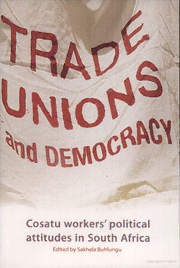
Trade unions and democracy : Cosatu workers' political attitudes in South Africa
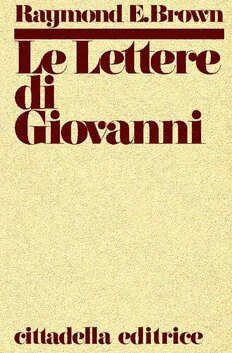
Le Lettere di Giovanni

Der langste Tag. Normandie 6. Juni 1944

Dragons Lost: Requiem for Dragons, Book 1

Читаем англо-американскую прессу: Английский язык в СМИ (Mass Media English)
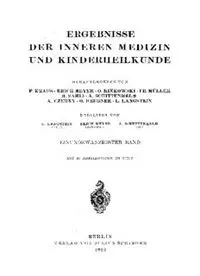
Ergebnisse der Inneren Medizin und Kinderheilkunde: Einundzwanzigster Band
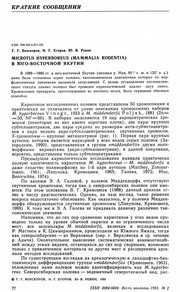
Microtus hyperboreus (Mammalia, Rodentia) in south-eastern Yakutia

By, marsk og geest 22
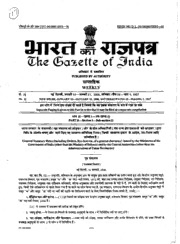
Gazette of India, 2006, No. 207
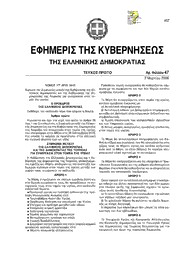
Greek Government Gazette: Part 1, 2006 no. 47
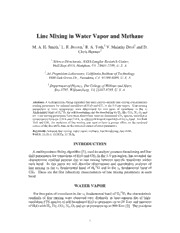
Line Mixing in Water Vapor and Methane

Opportunities in vocational & technical careers
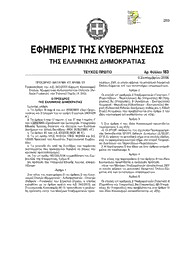
Greek Government Gazette: Part 1, 2006 no. 183

Long Lived States In Collisions
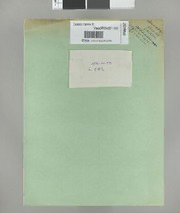
Vitis vinifera subsp. vinifera cv. Caladoc
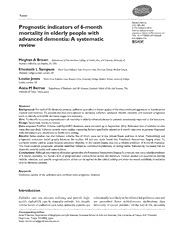
Prognostic indicators of 6-month mortality in elderly people with advanced dementia: A systematic review.
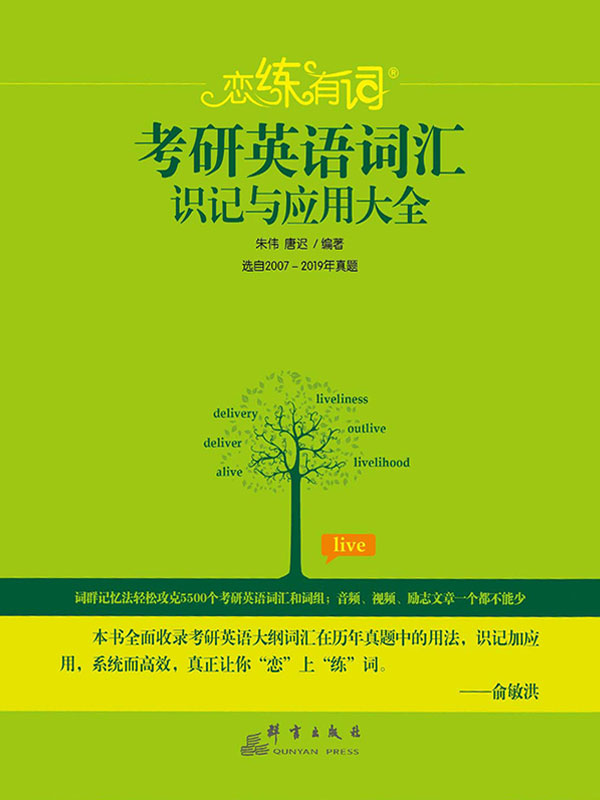
(2020)恋练有词:考研英语词汇识记与应用大全
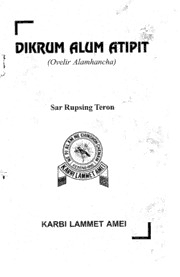
Dikrum Alum Atipit

